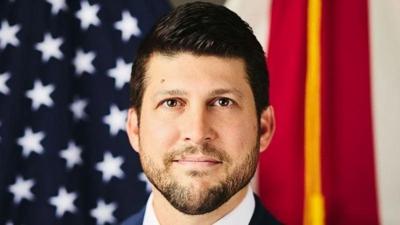
James Uthmeier
Florida’s attorney general should be held in contempt of court for encouraging arrests under a new state immigration law, Senate Bill 4-C, despite a federal judge’s previous order to halt enforcement of the measure, plaintiffs’ attorneys said in a federal court filing.
The attorneys, who represent groups opposed to the new law, including the Florida Immigrant Coalition and the Farmworker Association of Florida, made the argument against Attorney General James Uthmeier on May 22 in the Southern District of Florida. The controversy follows two letters Uthmeier sent to state law enforcement personnel, the first one on April 18 saying that the federal court had issued a temporary restraining order barring law enforcement agencies from enforcing provisions of SB 4-C.
A second letter to law enforcement personnel on April 23, however, highlighted Uthmeier’s disagreement with Judge Kathleen Williams’ April 4 opinion and suggested that “I cannot prevent you from enforcing (SB 4-C), where there remains no judicial order that properly restrains you from doing so.”
The letter expresses Uthmeier’s view that no “lawful, legitimate order” blocks law enforcement agencies in the state from continuing to enforce the measure.
“Considered objectively and in the context of the earlier letter, the attorney general’s second letter plainly undermined the notice he was directed to provide, and invited arrests which he knew would be violations of this court’s order,” the plaintiffs’ attorneys’ brief states. “That is quintessential contempt of court.”
The legal team also suggested that the court might find there is probable cause that Uthmeier engaged in criminal contempt, requiring that he be referred to the Florida Bar for possible disciplinary action.
SB 4-C criminalizes the entry or attempted entry of undocumented immigrants into Florida.
The Attorney General’s Office did not respond to a request for comment about the allegations. It seems clear, though, that Florida state attorneys, who are listed as defendants in the action, understood the reach of Williams’ order with regard to SB 4-C.
“... We have been made aware of the court’s ruling and injunction will comply with the court’s orders,” Jack Campbell, president of the Florida Prosecuting Attorneys Association, told the Florida Record in an email.
In a brief from the Attorney General’s Office filed with the federal court, Uthmeier’s attorneys said the attorney general reiterated in the April 23 letter the court’s view that the temporary restraining order applied to law enforcement personnel.
“He explained – as he had in the April 18 letter – that he believed the court’s conclusion as to permissible scope of the TRO was ‘wrong,’ and he noted that the April 18 letter had promised his ‘office would be arguing as much in short order.’”
Uthmeier has filed an appeal challenging Williams’ order with the 11th Circuit Court of Appeals.
The ACLU of Florida, one of the groups representing the plaintiffs, published a statement on the day the second letter was made public that SB 4-C was unconstitutional.
“Law enforcement agencies that enforce this unconstitutional law do so at their own legal peril,” the ACLU of Florida said.
In the ongoing litigation, the plaintiffs argue that neither the governor nor the Florida Legislature had the authority to enact the law because the U.S. Constitution gives the federal government exclusive powers to regulate immigration.



